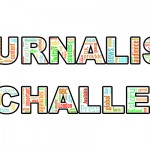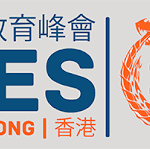“What journalism should we teach?” “How can the academy drive and lead change in practice?” These questions run like a red thread through a new publication produced by a collective of BU academics. Challenges and New Directions in Journalism Education (Routledge) draws on original and innovative contributions from educators, practitioners and students – including BU alumni. Its aim: to inform our understanding of journalism pedagogy in the context of ongoing shifts in journalism practice that often run deeper than merely technological change. Some observers describe journalism as broken – accused of elitism and often branded as too far removed from the reality of people’s lives. Beleaguered by a persistent crisis of trust, journalists and journalism are often portrayed as core to the problem, rather than the solution. Inclusivity remains an urgent issue with news organisations and industry councils, such as the National Council for the Training of Journalists intensifying protocols in a bid to create more diverse newsrooms.
Against this background, Challenges and New Directions in Journalism Education engages with a series of key themes and objectives: These include discussions around safeguarding, sustainability, journalism’s ‘democratic deficit’, integrating media literacy, podcasting and the ‘post-pandemic’ context. Each chapter draws on a research-informed approach: primary data, case studies and examples to describe and unpack the topic, and concludes with practical suggestions for journalism educators. The core tenet is the importance of listening — to the voices of students, the requirements of industry and to each other.
The book is accompanied by a podcast, in which the chapter authors expand on the final section of the book – Reflections. “ Journalists don’t often have time to reflect on their practice” says the book’s editor, Professor Karen Fowler-Watt “their work is tomorrow’s ‘fish and chip wrapper’ – so it was refreshing to have the time and space to discuss with each other the findings of our chapters and our own thoughts about the process of writing this book”. The book concludes with a Manifesto for Change, drawn up by the authors — it is intended to spark a conversation within and between industry and the academy.
The podcast (deftly edited by Jason Hallett) also includes the findings of a ‘call and response’ exercise with final year students of BA (Hons) Multimedia Journalism. Each chapter author devised a question for the students to debate and produce a call to action in response – this exercise was discussed further with journalism.co.uk. Senior reporter Jacob Grainger devoted the latest podcast to an interview with Karen Fowler-Watt, who is a former BBC journalist, about the book project, the students’ responses and ways of growing the next generation of journalists. They also discuss how journalism schools and news organisations can work together towards the shared goal of producing journalists that are ready to hit the ground running in industry. Never has this been more important than now – the conversation is only just beginning!
Challenges and New Directions in Journalism Education is published by Routledge.
Editor: Karen Fowler-Watt
Chapter authors – Members of the Journalism Education Research Group (JERG):
Andrew Bissell; Jaron Murphy; Graham Majin; David Brine; Michael Sunderland; Jo Royle; Max Mauro and Julian McDougall; Fiona Cownie; De-Graft Mensah (BBC Newsround presenter and BU alumnus); Daniel Henry (ITV News reporter).
The 2 part podcast: I Challenges and II New Directions is available under ‘Support Materials’ for the book.
The journalism.co.uk podcast is available here.
 Journalism: New Challenges, free eBook published by CJCR
Journalism: New Challenges, free eBook published by CJCR CEMP’s Media Education Summit in Hong Kong
CEMP’s Media Education Summit in Hong Kong










 Dr. Ashraf cited on ‘Modest Fashion’ in The Guardian
Dr. Ashraf cited on ‘Modest Fashion’ in The Guardian NIHR-funded research launches website
NIHR-funded research launches website Academics write for newspaper in Nepal
Academics write for newspaper in Nepal New paper published on disability in women & girls
New paper published on disability in women & girls Global Consortium for Public Health Research 2025
Global Consortium for Public Health Research 2025 MSCA Postdoctoral Fellowships 2025 Call
MSCA Postdoctoral Fellowships 2025 Call ERC Advanced Grant 2025 Webinar
ERC Advanced Grant 2025 Webinar Horizon Europe Work Programme 2025 Published
Horizon Europe Work Programme 2025 Published Horizon Europe 2025 Work Programme pre-Published
Horizon Europe 2025 Work Programme pre-Published Update on UKRO services
Update on UKRO services European research project exploring use of ‘virtual twins’ to better manage metabolic associated fatty liver disease
European research project exploring use of ‘virtual twins’ to better manage metabolic associated fatty liver disease